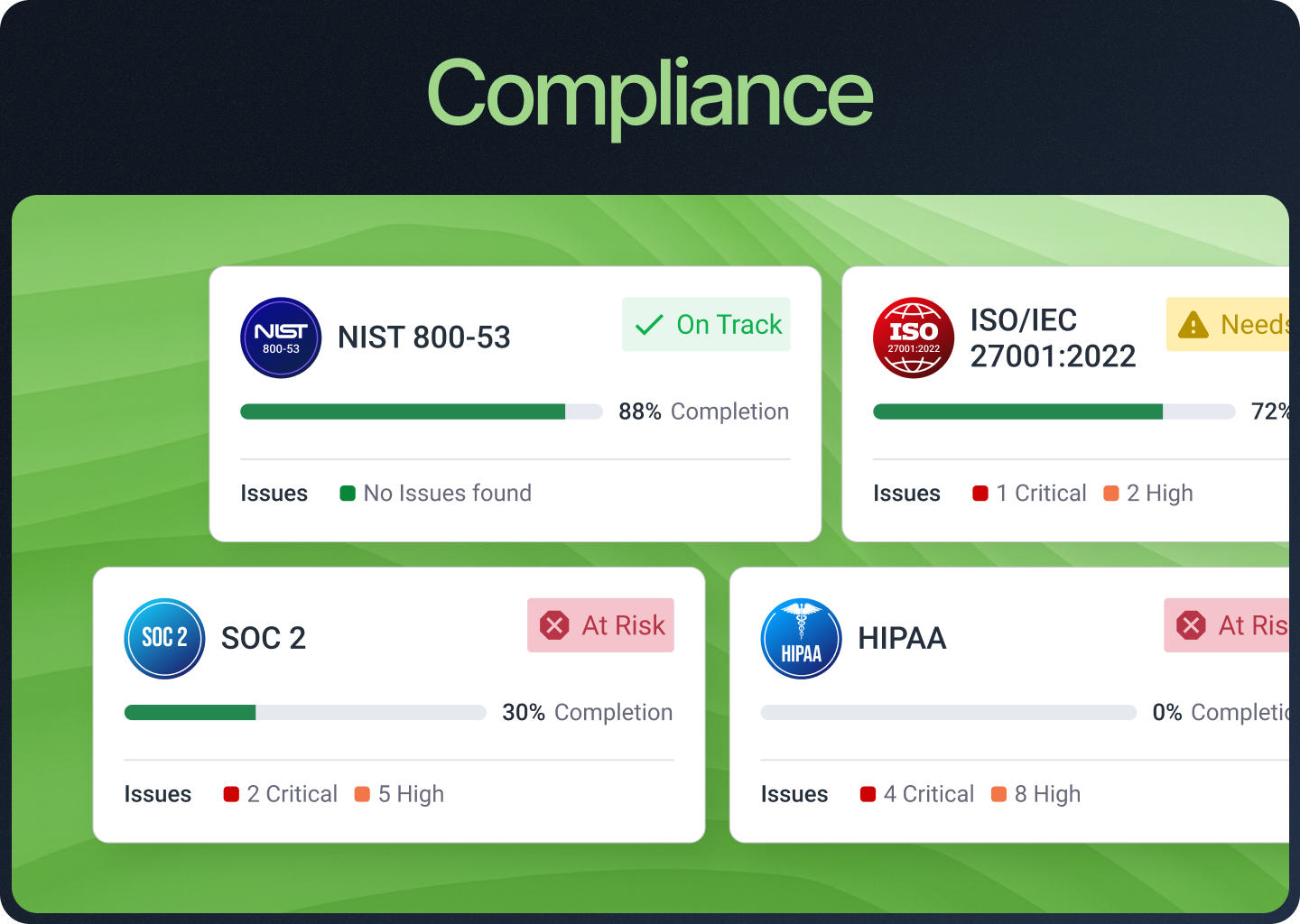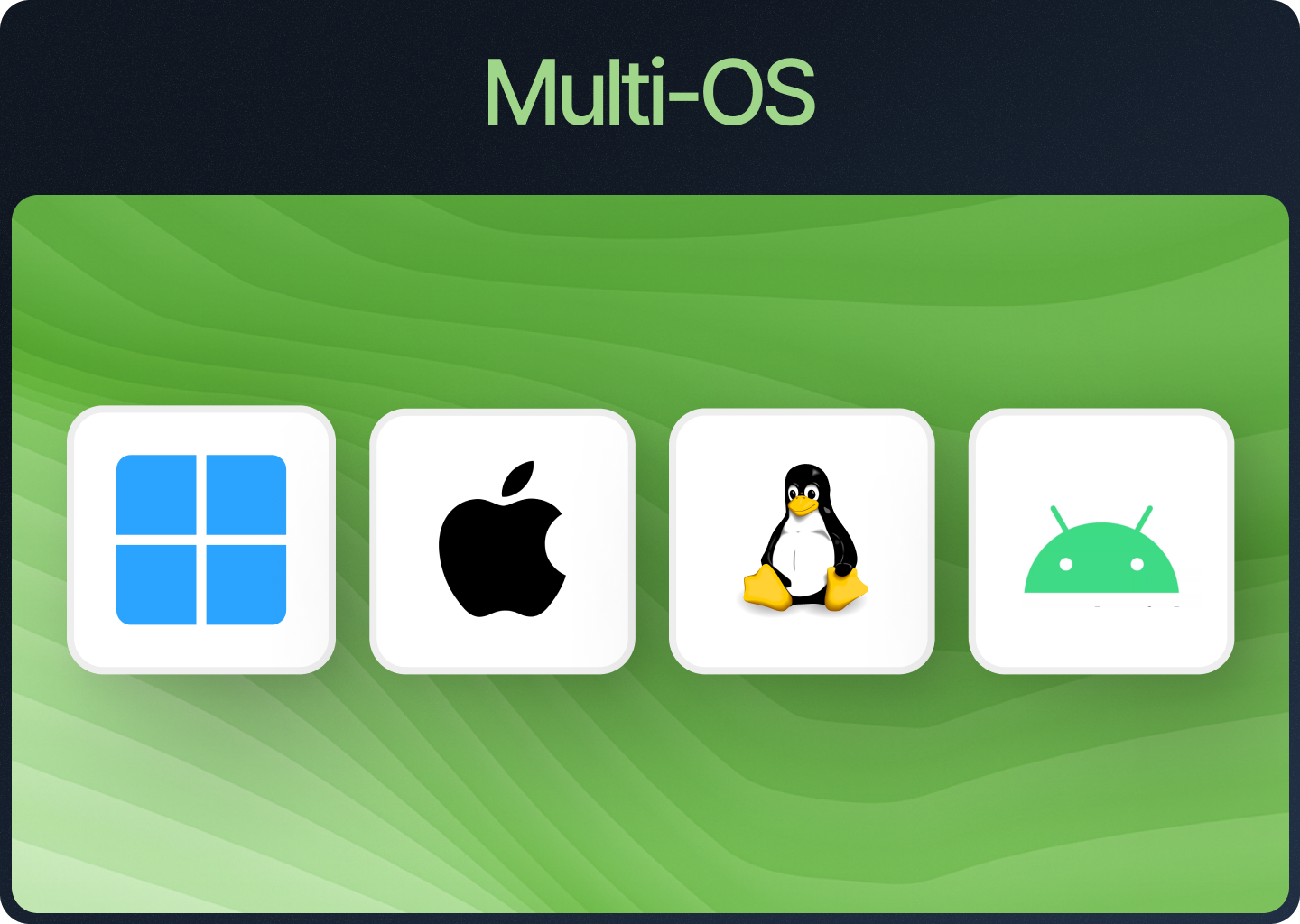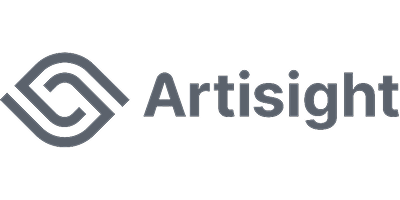Compliance Automation
Compliance automation software is a rapidly growing trend in various industries, especially in highly regulated healthcare, finance, and technology sectors. This software helps organizations manage their compliance obligations more efficiently and effectively, reducing the risk of non-compliance penalties, enhancing data security, and improving operational efficiency.
Swif has been integrated with Vanta and Drata for over a year, catering to a significant number of customers who utilize these platforms for their automation requirements.
Outlined below are the respective pros and cons of each platform:
Vanta Pros
- A client base of over 5,000
Vanta's rapid growth in recent years is highlighted by its large customer base. It is highly regarded for its ability to streamline the Vanta SOC 2 certification process. This ensures businesses handling sensitive customer data meet strict SOC 2 security and privacy standards. - Security training and template instructions
These resources are essential in ensuring Vanta compliance by providing detailed employee security and cloud security training. This training is crucial for meeting regulatory frameworks such as GDPR and HIPAA. - Preferred by vCISO firms
Vanta is trusted by major vCISO firms like VioletX, which find it efficient for managing Vanta SOC 2 processes, particularly automating security controls and creating audit-ready reports. - Vanta App Store
The mature and superior Vanta App Store enhances Vanta compliance efforts by offering various integrations, enabling businesses to streamline their processes more effectively. - Exceptional customer support
Vanta is known for its outstanding customer support, providing users with the help they need to navigate their compliance requirements smoothly.
Vanta Cons
- Collaboration with a trusted vCISO and auditor is required.
Although Vanta automates much of the compliance process, businesses must still collaborate with vCISO and auditors to complete specific tasks. This is common with Vanta compliance, which requires expert guidance on complex regulations. - Higher price tag
The Vanta SOC 2 cost may be higher than some competitors, making it more expensive for smaller businesses. However, the investment is often justified by its comprehensive automation features, such as continuous monitoring and automated evidence collection, which help businesses avoid costly penalties. - Vanta agent limitations
The Vanta agent is limited to device monitoring without control functions, requiring businesses to use additional device management tools.
Drata Pros
- Growing client base
Drata has shown impressive growth in the startup and midsize sectors, with over 1,000 clients. Like Vanta, it provides automation tools to help businesses achieve SOC 2 compliance, making it a great option for companies that must prove they meet critical data security standards. - High-quality security training and automation checks
Drata offers comprehensive compliance checks, which are similar to Vanta's compliance features. These include real-time monitoring and automated reporting that simplifies the audit process. - Clear instructions for compliance checks
Drata's straightforward guidelines for resolving compliance issues help businesses stay on track with their regulatory requirements. - Excellent customer support
Like Vanta, Drata is praised for its customer support, which is crucial for businesses that require ongoing assistance with their compliance needs.
Drata Cons
- App Store is still in the early stages.
While Drata has a growing ecosystem, its App Store needs specific integrations in Vanta compliance tools, which may limit certain functionalities. - High cost
Similar to Vanta SOC 2 cost, Drata’s pricing is higher, which may be prohibitive for smaller companies. However, both platforms offer substantial value through their automation features, which help prevent non-compliance risks. - Drata agent limitations
Like Vanta, Drata’s agent is limited to device monitoring, meaning businesses will eventually need to invest in dedicated device management tools.
End-to-End Compliance Automation Solutions
Certain businesses may opt for end-to-end (e2e) compliance automation vendors. However, it's important to know that these e2e solutions aggregate and manage various tools on your behalf while giving the impression of a comprehensive, all-in-one solution. Platforms like Vanta and Drata offer more specialized tools for handling SOC 2 and other regulatory compliance requirements.
For businesses aiming to streamline Vanta SOC 2 processes and leverage Vanta compliance solutions effectively, choosing these dedicated platforms can be a more beneficial approach.


























.png)











.webp)







